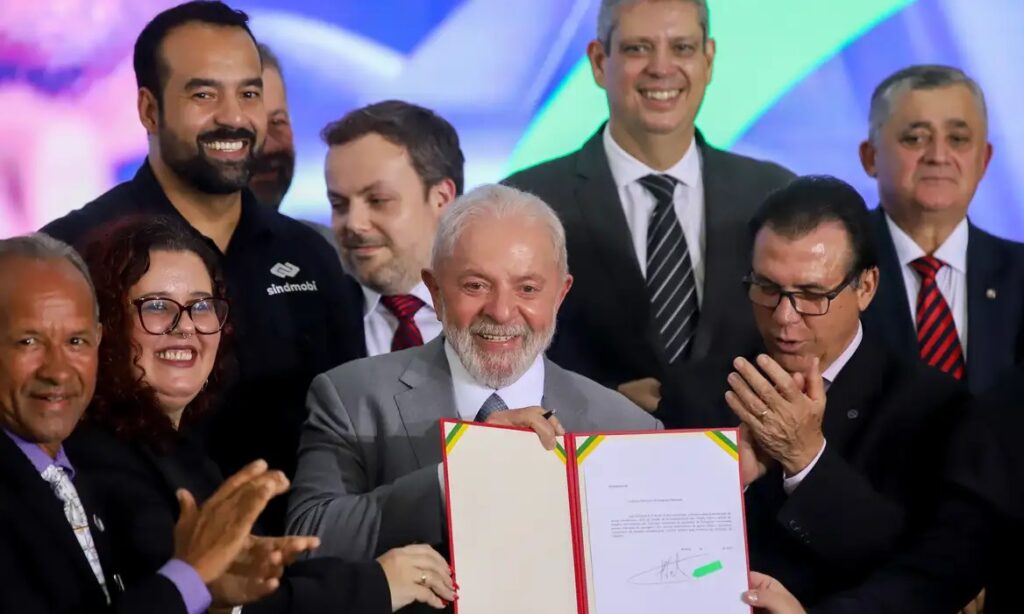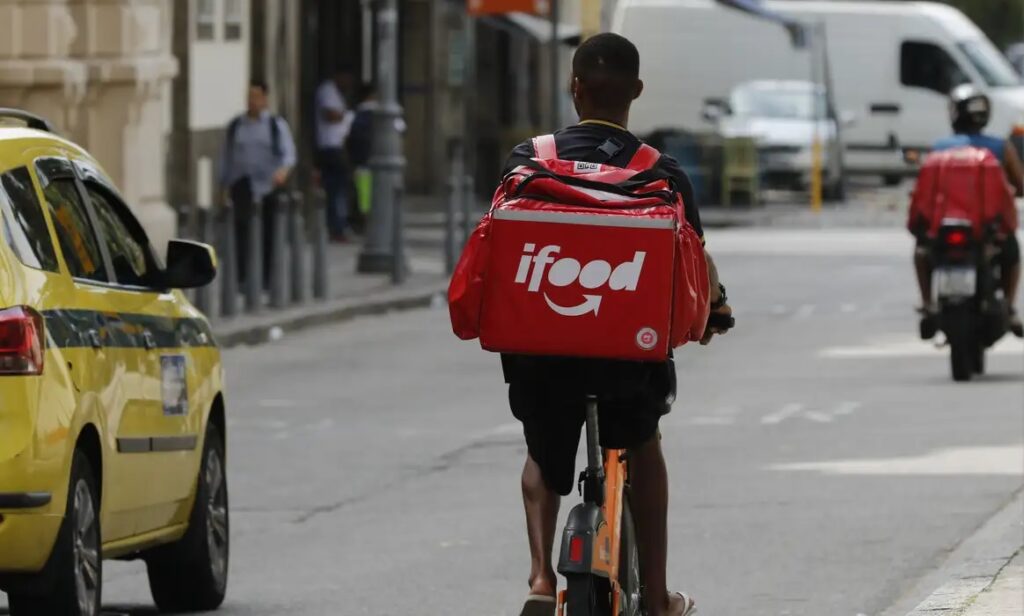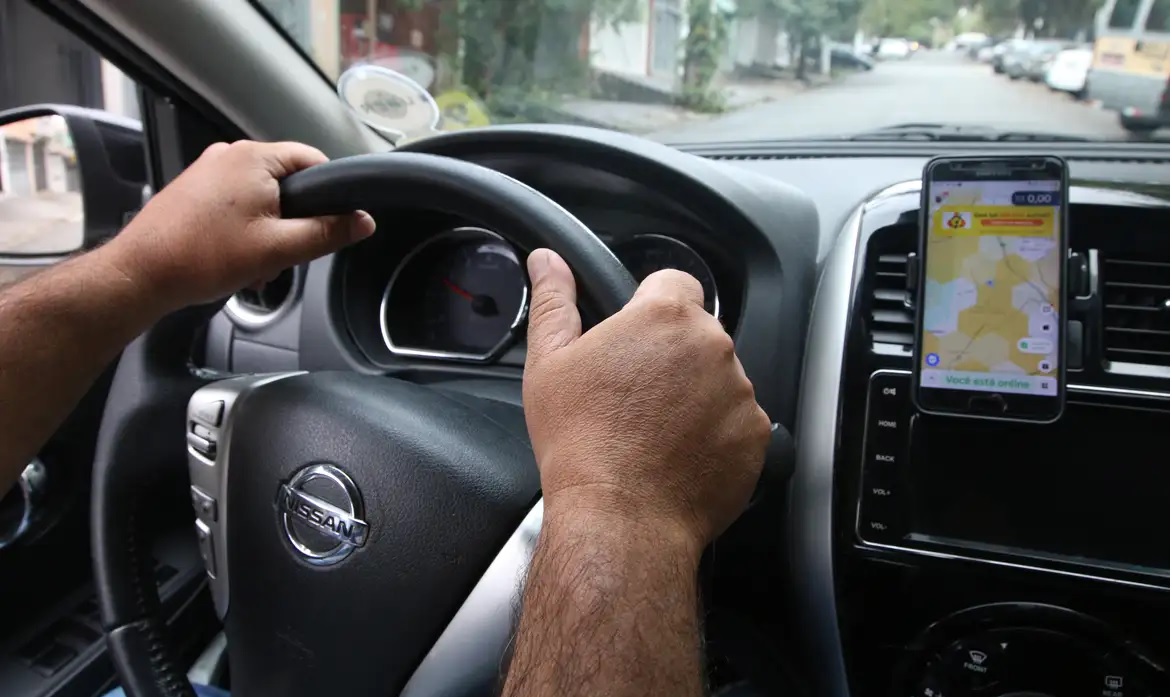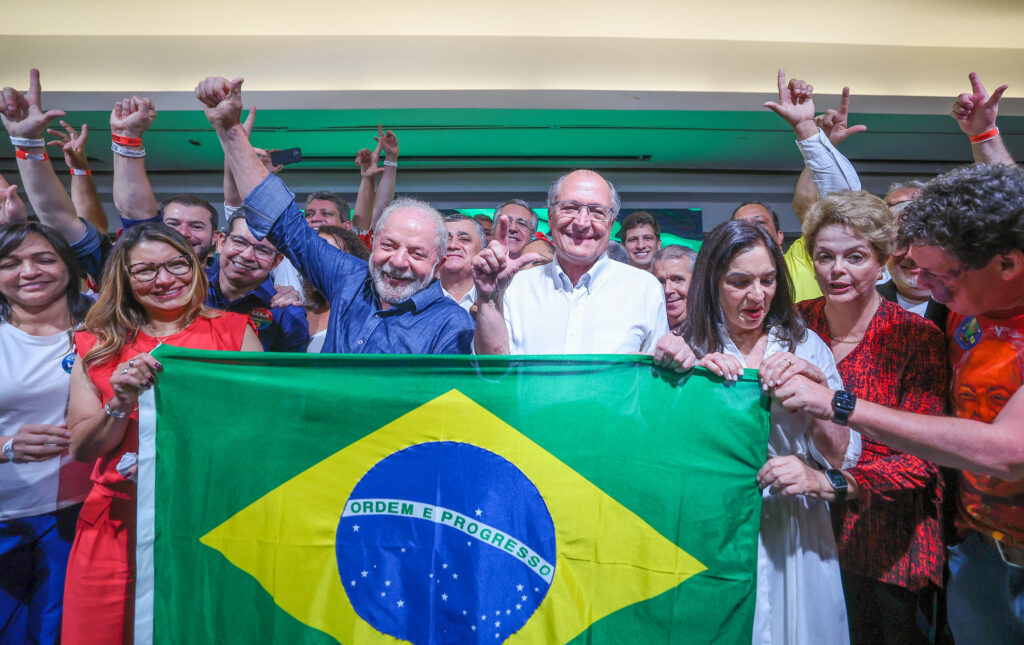São Paulo, Brazil – Brazil’s President Luiz Inácio Lula da Silva sent a bill to Congress on Monday that would create labor rights for rideshare drivers that use apps like Uber and 99. The measures include a minimum wage, a maximum working day of 12 hours and payments to social security to guarantee benefits upon retirement.
The law does not provide for an official employment relationship between the platform and the worker, according to the Brazilian Consolidation of Labor Laws (CLT), which is the main set of labor laws in the country.
The CLT defines standards for labor relations, rights and duties of employees and employers. It covers topics such as working hours, holidays, wages, workplace safety, and serves as a legal basis to guarantee fair and equitable conditions in the workplace.
As they will not be included in the CLT, drivers will still be able to use the apps as a complement to their main income and will be able to work on different platforms.
Minister of Labor and Employment Luiz Marinho said that they discussed whether app drivers should be covered by the CLT rules, but the majority of the category heard by the government preferred a model of autonomy with guaranteed rights.
“What is born here is a different category of workers: autonomous with rights. Drivers will be able to be linked to as many platforms as they want, they will be able to organize their schedules, but they will have their rights covered,” Minister Marinho said.
According to Lula, the goal isn’t to remove the autonomy from the workers, but rather to guarantee minimum conditions for them. “App drivers have created a new modality in the world of work. People want autonomy, they will have autonomy, but they need a minimum guarantee,” said Lula.
In addition to minimum wage and maximum working hours, the bill also provides maternity benefits for female drivers and a benefit for each hour worked (for fuel, insurance, vehicle maintenance, etc.), in addition to the creation of a union to represent the workers.
According to government data, in 2022, Brazil had 778,000 people working in transport apps, which represents 52.2% of all workers on digital platforms.

Delivery apps
The government’s proposal only covers ridesharing apps and not delivery apps, such as iFood, which is the largest restaurant delivery company in the country. The absence of iFood’s approval on the bill was criticized by Lula.
“iFood doesn’t want to negotiate. But we’re going to be so annoying that they’re going to have to negotiate,” said the president.
After Lula’s speech, iFood denied that they had refused to come to an agreement with the federal government on the regulation.
“The company reinforces that it has supported the regulation of work mediated by platforms since 2021 and seeks regulation for delivery that meets the particularities and different needs of drivers,” said iFood in a statement.
Repercussions
Uber, one of the largest rideshare apps in the country, said it will consider the government’s proposal as an important milestone for balanced regulation of work mediated by digital platforms.
“The company values the process of dialogue and negotiation between representatives of workers, the private sector and the government, resulting in this proposal, which includes consensus such as the legal classification of the activity, a minimum earnings standard and transparency rules,” Uber’s statement read.
The Brazilian Mobility and Technology Association (Amobitec) said that the proposal is an important step towards regulating the activity of app drivers.
“The proposal provides legal security for companies to invest in Brazil and adds benefits for workers, such as inclusion in the social security system, the contribution of which will be made by companies and workers, definition of minimum earnings and transparency rules, among other advances,” said Amobitec.

In the courts
The relationship between workers and apps has been the target of many lawsuits in recent years and there is no consensus in the Labors Courts: there are judges who recognize the employment relationship and order the platforms to compensate drivers according to the CLT, while there are others who understand that the model of hiring in apps does not apply to the current labor laws.
The Supreme Court is also analyzing a lawsuit that challenges whether app drivers have a formal working relationship with the platform. The trial began last week and has no end date.
The federal government’s bill has already been sent to Congress and will begin to be analyzed by the Chamber of Deputies, Brazil’s lower house. Afterwards, the proposal will be passed to the Senate.










